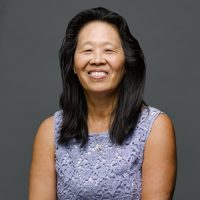Data Sharing
EPND featured at the AD Data Initiative symposium
03/07/2024

Each year, the International Conference on Alzheimer’s Disease and Parkinson’s Disease (AD/PD) welcomes a multidisciplinary mix of delegates to showcase and discuss the latest neurodegenerative disease research. The 2024 edition of AD/PD took place at the Lisbon Congress Center between 5-9 March, hosting over 600 presentations across six parallel sessions, and welcoming more than 4,700 on-site participants.
AD/PD was a whirlwind of activity for EPND, with talks on the main stage as well as a presence in the exhibition area. Our co-Lead, Phil Scordis (Head of Patient Data Analytics at UCB Pharma) featured in a special symposium on data and sample sharing, organised by our partners at the Alzheimer's Disease Data Initiative, entitled "Bridging a gap: how several key efforts are making their samples & data available to the broader research community". Moderated by Phyllis Ferrell of the Davos Alzheimer's Collaborative, the session featured five speakers from global and European initiatives that are collecting, generating and sharing data & samples of key importance to the Alzheimer’s and dementias community.
Read on to learn how groups from EPND, WW-FINGER, GNPC and other initiatives are driving innovation through data and sample sharing!
The AD/PD symposium was kicked off by Miia Kivipelto (Karolinska Institutet) leader of the pioneering FINGER clinical trial. “Dementia is a global challenge, requiring global solutions.” Miia explained. “And if you want to manage this global challenge, dementia prevention is one of the key elements.”
This mindset led to the establishment of the worldwide (WW) FINGERS Network in 2017, which now spans 62 countries and includes almost 19,000 study participants. The concept of data sharing was firmly embedded in the WW-FINGERS Network from the outset, prospectively harmonizing studies in different countries and settings and enabling federated access through the AD Workbench.
Miia and her team are now working to translate FINGER from research into practice. Launched earlier this year, AD-RIDDLE is an Innovative Health Initiative project led by Miia and Niranjan Bose (Gates Ventures), which is creating a modular toolbox platform with a suite of validated solutions for timely detection, diagnosis and treatment of Alzheimer’s disease - across different healthcare settings, and in diverse communities.
The second speaker, Rhoda Au of Boston University, highlighted a major issue hampering clinical research: a lack of diversity in research studies. This leaves gaps in data coverage and, crucially, gaps in our fundamental understanding of Alzheimer’s disease and dementia. “These include lifecourse gaps, racial and ethnic gaps, income gaps – as well as gaps in geographic coverage,” Rhoda explained.
Digital data sources have the potential to advance inclusive aging and dementia research: as well as offering rich insights into a person’s health, they are also easier to collect at scale, and across different settings. In 2005, Rhoda and colleagues started to collect digital voice data from the Framingham Heart Study cohort. This collection now includes 12,000 voice samples, which have been used to develop new screening tools for dementia. With the Davos Alzheimer’s Collaborative, and through the SpeechDX public-private partnership, Rhoda and her team are now working to establish digital voice as a global assessment solution for dementia, to widen access to detection, diagnosis and care.
In his career at the forefront of neurodegeneration research, Simon Lovestone has held leadership roles in academic institutions and in the private sector. At the AD/PD symposium, Simon announced the launch of a new public-private partnership: the Global Neurodegeneration Proteomics Consortium, or GNPC.
The GNPC brings together over 20 research cohorts on Alzheimer’s disease, Parkinson’s disease, frontotemporal dementia and other neurodegenerative disorders, with high-dimensionality proteomics data from over 40,000 patient samples. In total, this unparalleled resource comprises almost 300 million independent protein assays, making it the largest proteomics data collection worldwide. Sample collection and analysis is continuing across cohorts, with data sharing enabled through the AD Workbench.
“We need new biomarkers for PD, for vascular changes, for TDP-43, and for multiple other disorders.” Simon explained. “My hope is that we will derive real insights, that will make a real difference to the way we do clinical trials, and the way we do research – ultimately for the benefit of patients.”
The next speaker, Jean Manson, is Principal Investigator of the EPAD Bioresource at the University of Edinburgh. The European Prevention of Alzheimer’s Dementia project, also known as EPAD, was a unique, ground-breaking initiative to streamline the testing and development of preventative treatments for Alzheimer’s disease. Over the course of four years, EPAD recruited over 2,000 participants from 31 sites across Europe, with regular clinical follow-up that included longitudinal collection of biosamples, clinical, cognitive and brain imaging data.
“Our over-riding concept was to make the data freely available for anyone, and to share the samples for further research” Jean stated, explaining that researchers can access the EPAD dataset via the AD Workbench, thanks to support from the AD Data Initiative. In total, EPAD collected over 100,000 biosamples including cerebrospinal fluid, plasma, saliva and blood – representing an unparalleled resource for researchers.
Rounding off the AD/PD symposium, our co-Lead, Phil Scordis outlined the philosophy, ambitions and aims of EPND – and shared an important announcement with the audience. Highlighting the diversity and expertise of partners in the EPND consortium, Phil explained how we are building on existing initiatives and experiences to create a scalable, sustainable infrastructure for data and sample sharing.
“We understand the value of gaining access to data and samples. But we also recognise that there are complex legal, ethical and data security challenges to navigate,” he said. “We’re bringing the lessons we’ve learned about data and sample sharing and using this knowledge to facilitate the journey for the research community.” How? By creating tools and resources that help researchers to discover collaborators, datasets and biosamples, as well as technical support services for access and analysis.
In closing, Phil announced a major milestone for EPND: the launch of the extended EPND Catalogue. With a redesigned interface, upgraded functions and self-service tools, the Catalogue now provides extended information on 73 studies spanning 12 disease areas and representing more than 237,000 research participants – supporting discovery, access and sharing of data and samples.
Many thanks to the AD Data Initiative for a fantastic symposium!




